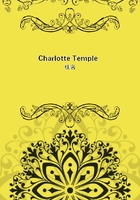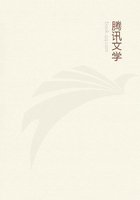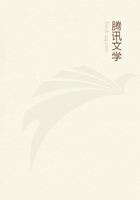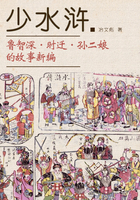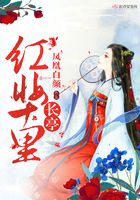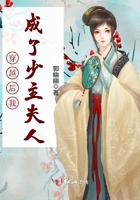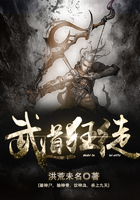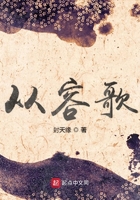However, the double conception of the corn as mother and daughter may have been too old and too deeply rooted in the popular mind to be eradicated by logic, and so room had to be found in the reformed myth both for mother and daughter. This was done by assigning to Persephone the character of the corn sown in autumn and sprouting in spring, while Demeter was left to play the somewhat vague part of the heavy mother of the corn, who laments its annual disappearance underground, and rejoices over its reappearance in spring. Thus instead of a regular succession of divine beings, each living a year and then giving birth to her successor, the reformed myth exhibits the conception of two divine and immortal beings, one of whom annually disappears into and reappears from the ground, while the other has little to do but to weep and rejoice at the appropriate seasons.
This theory of the double personification of the corn in Greek myth assumes that both personifications (Demeter and Persephone) are original. But if we suppose that the Greek myth started with a single personification, the aftergrowth of a second personification may perhaps be explained as follows.
On looking over the harvest customs which have been passed under review, it may be noticed that they involve two distinct conceptions of the corn-spirit.
For whereas in some of the customs the corn-spirit is treated as immanent in the corn, in others it is regarded as external to it. Thus when a particular sheaf is called by the name of the corn-spirit, and is dressed in clothes and handled with reverence, the spirit is clearly regarded as immanent in the corn. But when the spirit is said to make the crops grow by passing through them, or to blight the grain of those against whom she has a grudge, she is apparently conceived as distinct from, though exercising power over, the corn.
Conceived in the latter mode the corn-spirit is in a fair way to become a deity of the corn, if she has not become so already. Of these two conceptions, that of the cornspirit as immanent in the corn is doubtless the older, since the view of nature as animated by indwelling spirits appears to have generally preceded the view of it as controlled by external deities; to put it shortly, animism precedes deism. In the harvest customs of our European peasantry the corn-spirit seems to be conceived now as immanent in the corn and now as external to it. In Greek mythology, on the other hand, Demeter is viewed rather as the deity of the corn than as the spirit immanent in it. The process of thought which leads to the change from the one mode of conception to the other is anthropomorphism, or the gradual investment of the immanent spirits with more and more of the attributes of humanity. As men emerge from savagery the tendency to humanise their divinities gains strength; and the more human these become the wider is the breach which severs them from the natural objects of which they were at first merely the animating spirits or souls. But in the progress upwards from savagery men of the same generation do not march abreast; and though the new anthropomorphic gods may satisfy the religious wants of the more developed intelligences, the backward members of the community will cling by preference to the old animistic notions. Now when the spirit of any natural object such as the corn has been invested with human qualities, detached from the object, and converted into a deity controlling it, the object itself is, by the withdrawal of its spirit, left inanimate; it becomes, so to say, a spiritual vacuum. But the popular fancy, intolerant of such a vacuum, in other words, unable to conceive anything as inanimate, immediately creates a fresh mythical being, with which it peoples the vacant object. Thus the same natural object comes to be represented in mythology by two distinct beings: first by the old spirit now separated from it and raised to the rank of a deity; second, by the new spirit, freshly created by the popular fancy to supply the place vacated by the old spirit on its elevation to a higher sphere. In such cases the problem for mythology is, having got two distinct personifications of the same object, what to do with them? How are their relations to each other to be adjusted, and room found for both in the mythological system? When the old spirit or new deity is conceived as creating or producing the object in question, the problem is easily solved. Since the object is believed to be produced by the old spirit, and animated by the new one, the latter, as the soul of the object, must also owe its existence to the former; thus the old spirit will stand to the new one as producer to produced, that is, in mythology, as parent to child, and if both spirits are conceived as female, their relation will be that of mother and daughter. In this way, starting from a single personification of the corn as female, mythic fancy might in time reach a double personification of it as mother and daughter. It would be very rash to affirm that this was the way in which the myth of Demeter and Persephone actually took shape; but it seems a legitimate conjecture that the reduplication of deities, of which Demeter and Persephone furnish an example, may sometimes have arisen in the way indicated. For example, among the pairs of deities dealt with in a former part of this work, it has been shown that there are grounds for regarding both Isis and her companion god Osiris as personifications of the corn. On the hypothesis just suggested, Isis would be the old corn-spirit, and Osiris would be the newer one, whose relationship to the old spirit was variously explained as that of brother, husband, and son; for of course mythology would always be free to account for the coexistence of the two divinities in more ways than one. It must not, however, be forgotten that this proposed explanation of such pairs of deities as Demeter and Persephone or Isis and Osiris is purely conjectural, and is only given for what it is worth.

